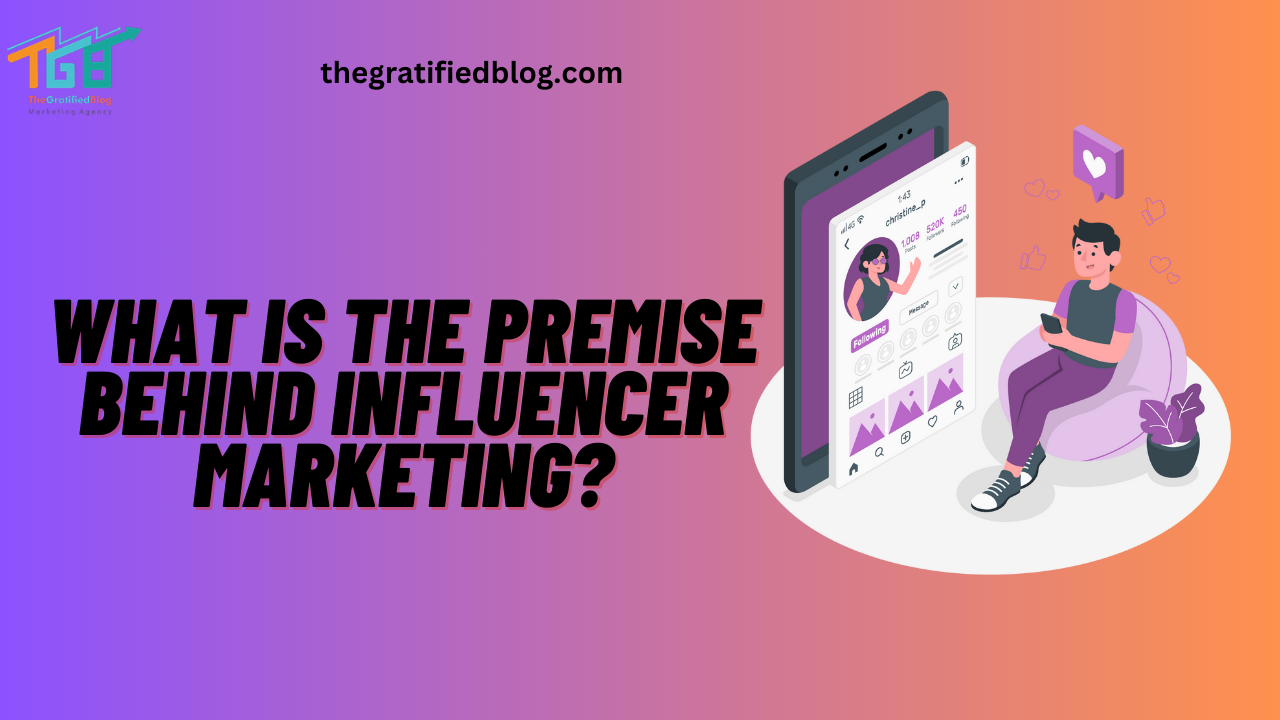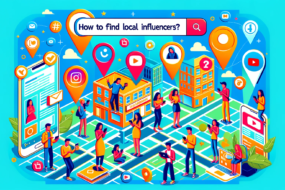
Influencer marketing is a dynamic strategy that leverages the popularity and authenticity of social media influencers to promote products or brands.
The premise behind influencer marketing revolves around the power of trust and relatability. Influencers, with their dedicated and engaged follower base, serve as conduits for brands to connect with their target audience in a more personal and persuasive manner.
This marketing approach is grounded in the belief that consumers are likelier to trust recommendations from individuals they admire and perceive as credible.
Influencers, often experts or enthusiasts in niche markets, allow brands to tap into a tailored, receptive audience. The authenticity of influencer content resonates with viewers, creating an emotional connection that traditional advertising struggles to replicate.
As social media continues to shape consumer behavior, influencer marketing remains a compelling strategy to drive engagement, reach, and sales.
The Rise Of Influencer Marketing
In today’s digital age, where consumers crave authentic and relatable content, the rise of social media influencer marketing, with influencers at its core, has gained prominence due to its ability to tap into the influencer’s existing audience, thereby expanding a brand’s reach organically.
Influencers are considered genuine endorsers, creating a seamless blend between promotion and user-generated content. This influencer marketing strategy is especially effective in today’s digital age, where consumers crave authentic and relatable content.
Influencer marketing allows brands to target specific demographics and tailor their messaging accordingly. This precision targeting ensures marketing efforts are directed toward the most receptive audience, increasing conversion rates.
Influencer collaborations often generate user-generated content, which serves as valuable social proof and further enhances a brand’s reputation.
In recent years, influencer marketing has evolved to include various types of influencers, from micro-influencers with niche followings to mega-influencers with millions of followers.
This diversity enables brands to choose influencers who align closely with their values and objectives. As influencer marketing continues to evolve, it remains a powerful tool for businesses seeking to connect authentically with their target audience in the digital landscape.
What Is The Premise Behind Influencer Marketing?

Influencer marketing utilizes the popularity, credibility, and reach of individuals or content creators (influencers) to endorse products, services, or brands to a specific target audience.
This marketing strategy is based on the idea that influencers have established a loyal and engaged following on social media platforms like Instagram, YouTube, and Snapchat. You can also see blogs or other online channels, and their recommendations or endorsements can influence the purchasing decisions of their followers.
Here are some key aspects:
Trust And Credibility:
Trust and credibility are paramount in influencer marketing. Influencers are widely regarded as trusted authorities within their respective niches, and their followers perceive them as authentic and credible sources of information and recommendations.
Brands strategically leverage this trust to enhance their products or services’ credibility. When an influencer endorses a brand, their audience perceives the endorsement as a reliable recommendation.
Influencers build trust through consistent, relatable content and engaging genuinely with their followers. They often have a personal connection with their audience, which further solidifies their credibility.
Brands collaborate with influencers to tap into this pre-established trust, effectively reaching a more receptive audience. This symbiotic relationship hinges on the influencer’s ability to maintain authenticity and the brand’s alignment with the influencer’s values.
Influencer marketing relies on the influencer’s track record of providing valuable insights and advice. Brands seek influencers who resonate with their target audience, as this alignment enhances the credibility of the partnership.
Ultimately, trust and credibility are the cornerstones of successful influencer marketing, serving as the bridge that connects influencers, brands, and their shared audience.
Audience Segmentation:
Audience segmentation plays a pivotal role in influencer marketing. Influencers possess followers with distinct interests, demographics, or traits, making them valuable tools for brands seeking to reach specific consumer groups.
By selecting influencers whose follower base closely mirrors their target audience, brands can attain remarkable precision and effectiveness in their marketing campaigns.
This strategy allows brands to bypass the traditional, broad-spectrum approach and, instead, engage with a more receptive and relevant audience.
Tailoring content and messaging to align with the interests and preferences of these segmented audiences leads to higher engagement rates and increased brand affinity.
Influencers bring authenticity and credibility to the table, enhancing audience segmentation’s impact. Leveraging influencers within each segment can result in heightened trust and brand association.
As a result, brands can optimize their marketing spend by efficiently allocating resources to influencers who best resonate with their desired consumer segments, yielding better results and ROI.
In essence, audience segmentation through influencers is a potent strategy that empowers brands to connect with their ideal consumers meaningfully and impactfully.
Content Creation:
Content creation is at the core of influencer marketing. Influencers craft content that connects with their followers, employing various mediums such as blog posts, videos, social media updates, or other creative formats.
This content often reflects their unique personality and style, enabling them to cultivate a dedicated and engaged audience.
Brands recognize the power of influencer-created content and strategically partner with influencers to seamlessly integrate their products or services. This collaboration results in authentic and persuasive promotional material, reaching a wider audience organically.
By leveraging an influencer’s storytelling abilities, brands tap into the trust and credibility influencers have nurtured among their followers.
Influencers have the knack for balancing brand promotion and genuine content, ensuring their audience remains receptive. This synergy between influencers and brands drives higher engagement, fosters brand loyalty, and enhances the overall marketing strategy.
Influencers wield considerable influence over their audience’s perceptions and purchase decisions as content creators, making them invaluable assets in modern marketing.
Reach And Exposure:
Influencers typically have a wide reach, which can help brands reach a broader and potentially untapped audience. This reach is particularly valuable for brands looking to expand their online presence.
With their established follower base, influencers can swiftly expose a brand’s products or services to a vast and engaged audience, potentially increasing brand awareness and customer acquisition.
Influencers understand their target demographic profoundly, allowing brands to tap into specific niche markets more effectively.
The exposure provided by influencers isn’t limited to just one platform; they often maintain a strong presence across various social media channels, ensuring a multi-faceted approach to brand promotion.
Influencers frequently generate authentic and relatable content, which resonates better with their followers than traditional advertising. This authenticity can lead to higher trust and credibility for the brand, ultimately fostering long-term customer loyalty.
The reach and exposure offered by influencers are invaluable assets for brands seeking to establish a solid online presence, connect with niche audiences, and create a trustworthy image in the eyes of consumers.
Collaborating with influencers can be a strategic move for companies looking to stay competitive in the digital age.
Authenticity:
Maintaining authenticity is paramount in the realm of successful influencer marketing campaigns. The influencer’s voice and style are the foundation for these campaigns.
When promotions align seamlessly with the influencer’s brand, audiences are more likely to respond with enthusiasm and trust. This trust is a precious currency in the influencer-marketing equation.
Inauthentic content risks alienating followers and damaging the influencer’s credibility. Authenticity fosters a deeper connection between the influencer and their audience, establishing a bond built on shared values and interests.
Such a connection transcends mere advertising and transforms followers into loyal advocates. Authentic influencer marketing campaigns yield higher ROI as the genuine endorsement resonates better with consumers.
The influencer’s personal experiences and genuine enthusiasm amplify the appeal of the promoted products or services. Authenticity remains the linchpin in crafting influencer marketing campaigns that leave a lasting impact and drive results.
Measurable Impact:
Influencer marketing offers brands a tangible way to gauge their campaign effectiveness through various metrics.
These include engagement rates, which measure how actively the audience interacts with content; click-through rates, indicating the success of call-to-action prompts; conversion rates, reflecting the proportion of engaged viewers turning into customers; and sales figures, which directly measure the revenue generated.
Such data empowers brands to not only assess their current campaigns but also to strategize future partnerships.
By closely monitoring these metrics, brands can pinpoint which influencers resonate most with their target audience and optimize their collaboration strategies accordingly.
This data-driven approach lets brands decide on budget allocation, content direction, and influencer selection. It allows for real-time adjustments, ensuring marketing resources are allocated to the most effective avenues.
Influencer marketing’s measurable impact serves as a critical compass for brands navigating the dynamic landscape of digital advertising.
It provides the insights needed to refine strategies, maximize ROI, and cultivate lasting partnerships that deliver value for brands and influencers.
Relationship Building:
Building relationships with influencers can lead to long-term partnerships and collaborations. Repeat collaborations help maintain brand consistency and strengthen the influencer and brand association.
It is vital for fostering trust among the audience, as viewers become accustomed to the influencer endorsing the brand over time, enhancing credibility.
Cultivating influencer relationships can provide valuable insights into the target audience and consumer preferences. By working closely with influencers, brands can tap into their knowledge and expertise to tailor marketing strategies effectively.
Collaborations also allow for creative synergy, enabling both parties to generate unique, engaging content that resonates with the audience.
Moreover, strong influencer relationships can lead to cost-effective marketing campaigns. When brands establish lasting partnerships with influencers, they can often negotiate favorable rates and unlock the benefits of influencer marketing.
These partnerships may extend beyond sponsored content to co-developed products or exclusive promotions, offering brands a competitive edge in the market.
Nurturing relationships with influencers isn’t just about short-term gains; it’s about building enduring connections that can yield consistent brand recognition, audience trust, strategic insights, creative collaboration, and cost-efficiency in marketing efforts.
These relationships are a cornerstone for brand success in the ever-evolving landscape of influencer marketing.
FAQ’S
What Is The Concept Of Influencer Marketing?
Ans: Influencer marketing is a marketing strategy involving partnering with individuals with a significant and engaged following on social media platforms or other online channels.
These individuals, known as influencers, can sway their followers’ opinions and purchasing decisions due to their credibility, authority, and authenticity within a specific niche or industry.
Brands collaborate with influencers to promote their products or services through sponsored content, reviews, endorsements, or other types of partnerships.
The goal is to leverage the influencer’s reach and influence to increase brand awareness, generate leads, and drive sales.
What Is The Role Of Influencer Marketing?
Ans: Influencer marketing leverages individuals with substantial online followings to promote products or services.
Its primary role is to tap into the influencer’s credibility and reach to connect with a target audience authentically.
This strategy can boost brand awareness, credibility, and engagement, ultimately driving sales and conversions.
It involves collaboration between brands and influencers to create content that resonates with the influencer’s audience, offering a practical and relatable advertising approach in the digital age.
Conclusion
The premise behind influencer marketing, often referred to as marketing influencer, is grounded in authenticity, trust, targeted reach, content creation, follower engagement, social proof, and measurable results.
It has become a dominant force in the marketing landscape due to its ability to connect brands with their target audience more genuinely and effectively.
Influencer marketing will likely remain a vital strategy for brands looking to stay relevant and competitive as consumers seek authenticity and personal connections in the digital world.








No Comments